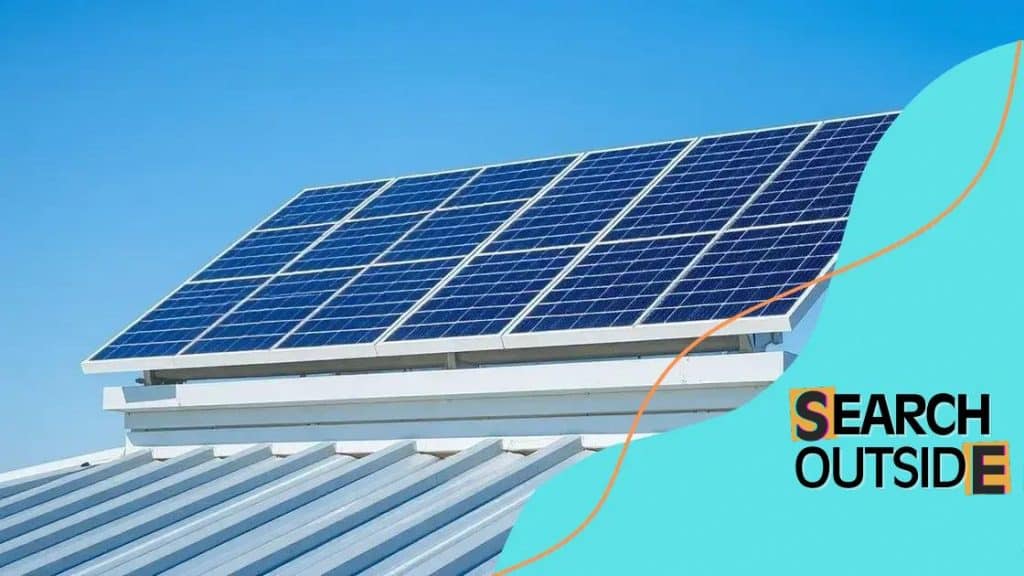Innovations in renewable energy technologies for homes

Innovations in renewable energy technologies for homes, such as solar and wind systems, provide cost savings, environmental benefits, and increased property value while enabling homeowners to produce their energy sustainably.
Innovations in renewable energy technologies for homes are paving the way for a sustainable future. Have you considered how these advancements might change your energy consumption habits? This article dives into the latest trends and what they mean for you.
Understanding renewable energy technologies
Understanding renewable energy technologies is essential for embracing a sustainable future. These technologies harness energy from natural resources that replenish themselves, ensuring a cleaner environment for generations to come.
Types of Renewable Energy Technologies
There are several prominent types of renewable energy technologies available today. They include solar, wind, hydro, and geothermal. Each of these options provides unique benefits and applications.
- Solar Energy: This technology converts sunlight into electricity using solar panels.
- Wind Energy: Wind turbines capture wind energy to generate power.
- Hydropower: This method utilizes flowing water to produce electricity.
- Geothermal Energy: It taps into the Earth’s heat for energy needs.
These technologies not only provide clean energy but also help reduce dependence on fossil fuels. By implementing renewable sources, homeowners can significantly lower their carbon footprint and cut energy costs.
The Benefits of Renewable Energy
Switching to renewable energy technologies offers numerous advantages. For starters, they are sustainable and provide a continuous energy supply. Unlike fossil fuels, these resources will not run out. Additionally, they promote energy independence, reducing reliance on imported fuels.
Moreover, renewable energy technologies can contribute to economic growth by creating jobs in installation and maintenance fields. Investing in these technologies can lead to lower energy bills and increase the value of a home.
As awareness of climate change increases, many homeowners are exploring renewable energy options. By understanding the various technologies, you can make informed decisions about which solutions are best for your home.
Benefits of renewable energy for homeowners
The benefits of renewable energy for homeowners are becoming more apparent as technology evolves. By choosing renewable energy sources, you can enjoy significant advantages for your household.
Cost Savings
One of the primary benefits is the potential for cost savings. Using renewable energy can lower your electricity bills significantly over time. After the initial installation, the ongoing maintenance costs are typically low, making it financially appealing.
- Reduced Utility Bills: Many homeowners experience reduced monthly bills with solar panels.
- Government Incentives: Tax credits and rebates can further lower installation costs.
- Long-Term Investment: Renewable energy systems often appreciate in value and can increase home resale prices.
Additionally, switching to renewable energy helps to protect you from rising energy prices. As traditional energy costs fluctuate, renewable options remain stable. This provides peace of mind for homeowners looking to budget effectively.
Environmental Impact
Another critical aspect is the positive impact on the environment. Renewable energy technologies generate little to no greenhouse gases, helping to combat climate change. By using these systems, homeowners can contribute to a healthier planet.
When more homeowners embrace renewable solutions, the collective effect can lead to cleaner air and reduced pollution levels in communities. This shift not only benefits individual households but also enhances the overall quality of life.
Using renewable energy positively affects local economies as well. By investing in solar or wind energy, homeowners drive demand for green jobs in their area, promoting economic growth and sustainability.
Exploring solar energy solutions

Exploring solar energy solutions reveals a world of opportunities for homeowners looking to reduce energy costs and environmental impact. Solar energy is harnessed from the sun and converted into electricity, making it one of the cleanest energy sources available today.
Types of Solar Technologies
There are several types of solar technologies to consider when looking into solar energy for your home. The most common include photovoltaic (PV) systems, solar water heating, and concentrating solar power (CSP).
- Photovoltaic (PV) Systems: These systems convert sunlight directly into electricity using solar panels.
- Solar Water Heating: This technology uses solar energy to heat water for residential use.
- Concentrating Solar Power (CSP): CSP systems use mirrors or lenses to focus sunlight onto a small area to generate heat and produce electricity.
Each type of system has its unique benefits, and the choice depends on your specific needs and location. Understanding these options allows homeowners to select the best solution.
Benefits of Solar Energy
The advantages of adopting solar energy solutions go beyond just lowering electricity bills. By investing in solar energy, homeowners can enhance their property value and achieve energy independence.
The installation of solar panels often leads to significant energy savings. Homeowners can produce their power, reducing reliance on grid electricity. This shift also helps protect against rising energy costs.
Moreover, solar energy contributes to a healthier environment. Since it produces zero emissions during operation, it plays a crucial role in reducing greenhouse gas emissions. This eco-friendly technology is vital in the fight against climate change and pollution.
As solar technology continues to evolve, new innovations are making solar energy even more accessible and efficient. Homeowners are now able to use battery storage systems to store energy for use during cloudy days or at night, further enhancing the reliability of solar power.
Wind energy options for residential use
Wind energy options for residential use are becoming increasingly popular as homeowners seek sustainable energy solutions. Wind energy harnesses the power of the wind to generate electricity, providing a clean and renewable resource for homes.
Types of Wind Energy Systems
There are mainly two types of wind energy systems suitable for residential use: vertical-axis wind turbines (VAWT) and horizontal-axis wind turbines (HAWT). Each type has its benefits and applications.
- Vertical-Axis Wind Turbines (VAWT): These turbines are designed with blades that rotate around a vertical axis. They are typically more compact and can be installed in smaller spaces.
- Horizontal-Axis Wind Turbines (HAWT): These are the most common type of wind turbines. They rotate around a horizontal axis and are usually more efficient in producing electricity, especially in open areas.
When considering the installation of a wind energy system, factors such as location, wind speed, and space availability should be taken into account. Homes in areas with consistent wind patterns will benefit the most from wind energy installations.
Benefits of Wind Energy for Homes
Choosing wind energy offers numerous advantages for homeowners. One major benefit is the potential for significant cost savings on electricity bills. By generating your own power, you can reduce reliance on grid electricity.
In addition to cost savings, wind energy is environmentally friendly. It produces no greenhouse gas emissions during operation, helping to fight climate change. By using wind energy, homeowners can contribute to a more sustainable future.
Furthermore, investing in wind energy can also increase property value. Homes equipped with renewable energy solutions often appeal to eco-conscious buyers, making them more attractive on the market.
As technology advances, smaller and more efficient wind turbines are becoming available, making it easier for homeowners to integrate wind energy solutions into their properties. These innovations allow more people to take advantage of the benefits of wind energy.
Future trends in home energy technology
Future trends in home energy technology are shaping the way we produce and consume energy in our households. As the demand for sustainable living grows, innovations are emerging that promise greater efficiency and lower environmental impact.
Smart Home Integration
One of the most significant trends is the integration of smart home technology with energy systems. Homeowners can now monitor and control their energy usage through mobile apps and smart devices.
- Remote Monitoring: Home energy use can be tracked in real-time, allowing for better management and savings.
- Automated Systems: Smart thermostats and energy-efficient appliances can adjust settings automatically based on homeowner preferences.
- Data Analytics: Advanced analytics provide insights into energy consumption, helping users identify waste and optimize usage.
This advanced technology not only simplifies energy management but also enhances overall household efficiency.
Renewable Energy Innovations
As renewable energy becomes increasingly feasible for residential use, innovations continue to drive its adoption. For example, solar panels are now more efficient than ever, thanks to new materials and designs.
Batteries are also evolving, providing effective energy storage solutions that allow homeowners to utilize renewable energy even when the sun isn’t shining or the wind isn’t blowing. These storage solutions enable users to become less reliant on traditional grid electricity.
Another exciting trend is the development of microgrid systems. These local energy grids can operate independently from the central grid, offering resilience and improved energy security to homes.
Furthermore, energy-producing building materials are emerging. Homes can now integrate solar tiles and energy-efficient materials right into their construction, which reduces reliance on traditional energy sources.
As these technologies develop, homes will not only be places to live but will transform into self-sufficient energy producers contributing to a sustainable environment.
FAQ – Frequently Asked Questions about Renewable Energy Technologies for Homes
What are the primary benefits of using renewable energy in homes?
The primary benefits include cost savings on energy bills, reduced environmental impact, increased property value, and energy independence.
How do solar panels work?
Solar panels convert sunlight directly into electricity using photovoltaic cells, generating clean energy for your home.
What types of wind energy systems are available for residential use?
The main types are vertical-axis wind turbines (VAWT) and horizontal-axis wind turbines (HAWT), both of which harness wind energy to produce electricity.
What should homeowners consider before installing renewable energy systems?
Homeowners should consider factors such as location, investment cost, energy needs, and the availability of government incentives for renewable energy installations.





